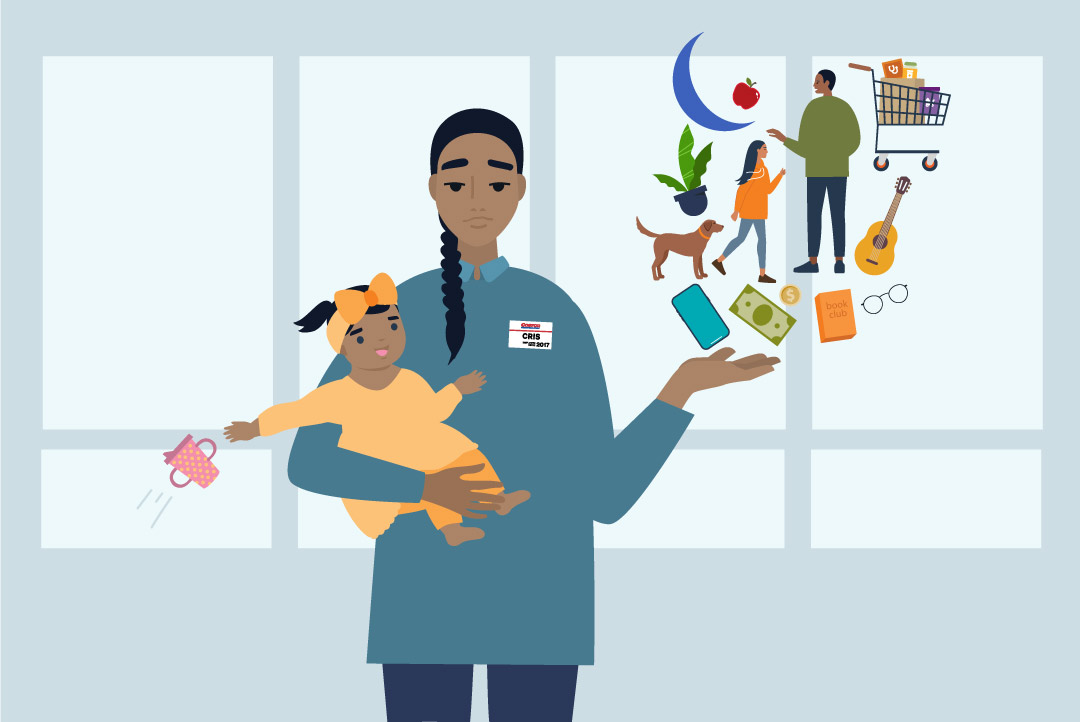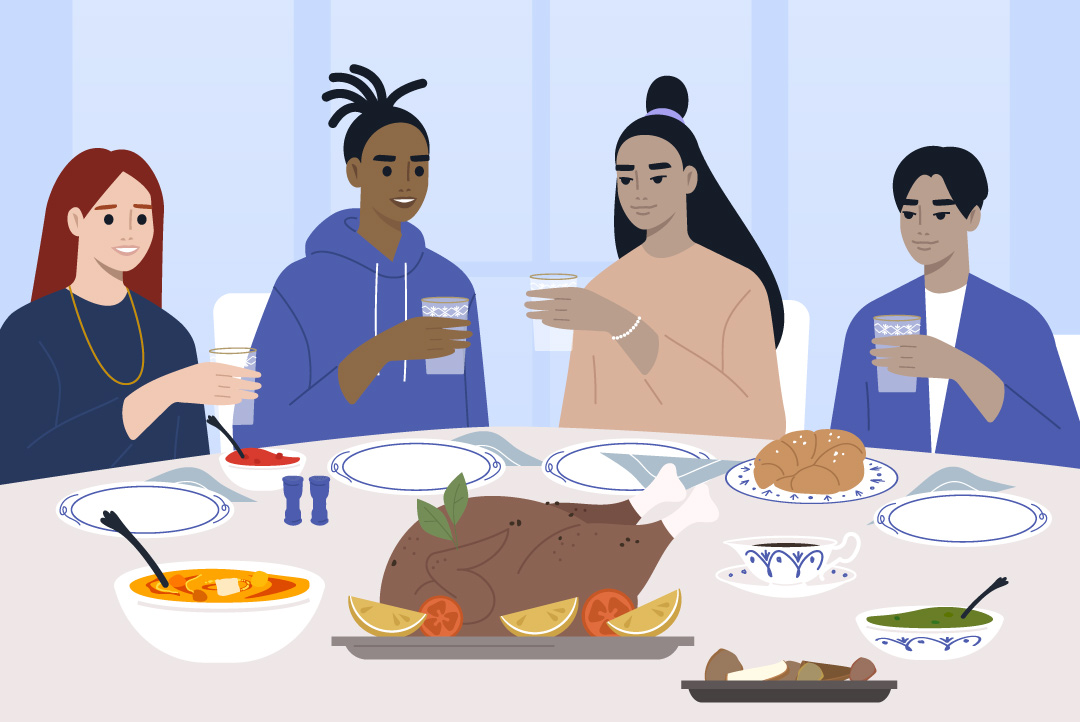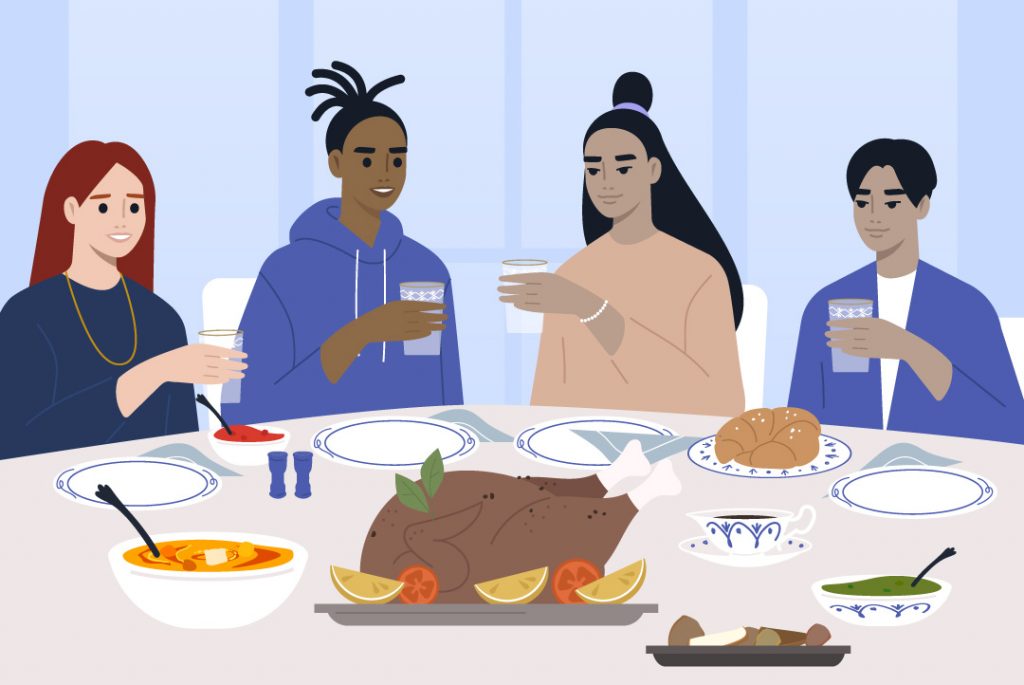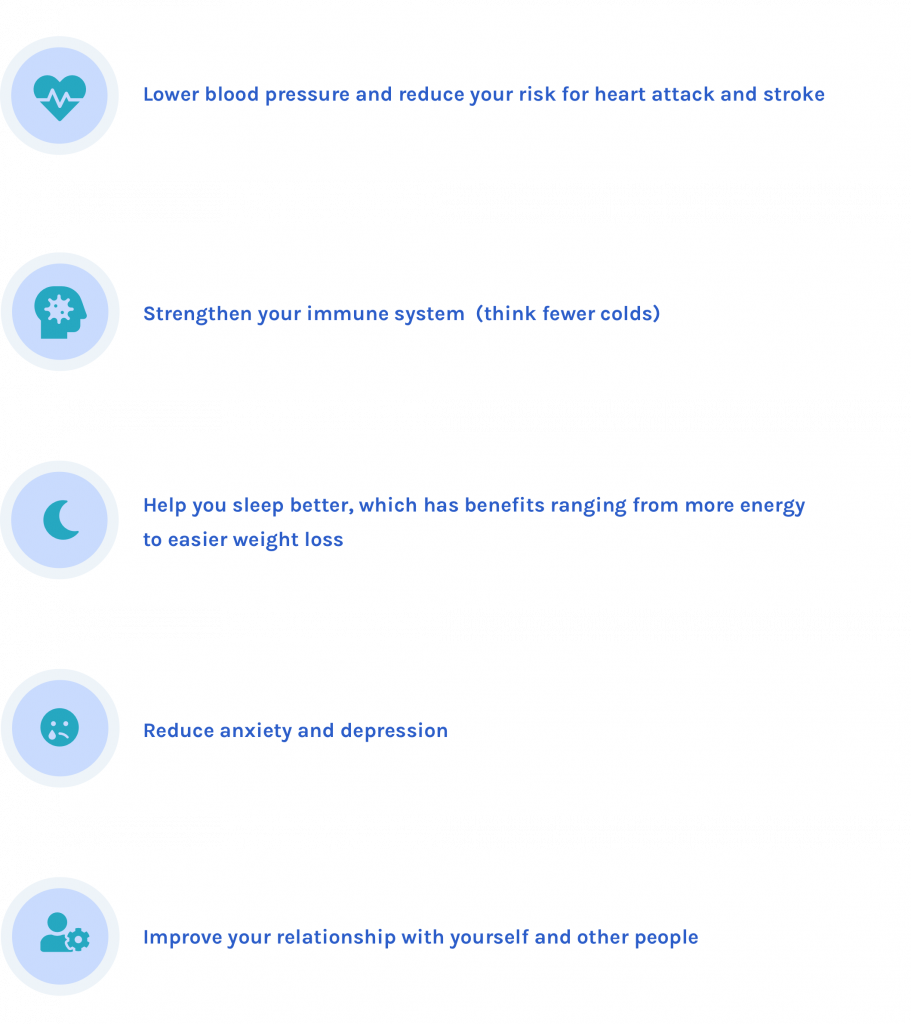No matter how hard you try to be a great mom, sometimes you feel like your best just isn’t good enough. What you’re experiencing is “mom guilt.” And you’re not the only woman who feels this way.
Angie: Hello and welcome to our twenty seventh episode of Behaviorally Speaking I’m one of your hosts Angela Nelson a board certified behavior analyst and mother of two.
Kristin: And I’m Kristen Bondi also a board certified behavior analyst and mother of three, hey Angie how are you?
Angie: I am good summer is kind of winding down here and I don’t know how I feel about it I’m I have mixed feelings about kids going back to school. There’s definitely pros and cons.
Kristin: I know I know yeah, we already started school here. So, we’re way ahead of the group. We started on the 10th of August, so we are really soon I know we’re already back? Yes, yeah.
Angie: Yeah, I feel like every year we talk about kids going back earlier and earlier.
Kristin: Not only earlier but I think we mentioned I don’t know if it was you and I talking, or we mentioned um at some point on a podcast but not only that but my son starts school so early in the morning and I think I was telling you that his bus comes at six forty in the morning and I’m like this is nuts and he insists on riding it too.
Angie: Um, oh yeah, oh my gosh.
Kristin: Ah, like are you sure I know my husband was like this novelty is totally going to wear off by yet like mid school year. It’s going to be. We’re waking him up. But.
Angie: I mean I guess it’s a good life skill for when he’s older, but it doesn’t make things easy for you.
Kristin: and he’s going to be like no I’m going back to sleep. He’s going to then he’s going to want the car line which we can drop off later so and we’ll see stay Tuned I’ll let you know wow right? and we can’t.
Angie: Yeah, yeah, oh my gosh it. It just elongates your morning, right? because you’ve got early and then you’ve got other kids that you have to cart off oh my gosh. Yeah, that’s a long morning routine.
Kristin: Yeah, we can’t bring them all at the same time at that time of day because we can’t drop off at daycare at six forty five, I think it’s open that early maybe seven but definitely not six forty five so yeah, it’s interesting. Ah huh exactly? yeah.
Angie: Yeah.
Angie: Oh man. Well, I’ll follow up with you in a couple weeks and see if that’s still rocking and rolling. Ah well today we are going to talk about mom guilt.
Kristin” Yeah.
Angie: Or Mommy guilt as it’s sometimes known as and when we were diving into this research, we kind of both know what that is from experience. We kind of feel it. But what is this exactly. So, It’s kind of you know going into the definition or quote unquote definition of this. It’s kind of. Ah, feelings of guilt that women experience in relation to being a parent or being a mom or you know in relation to their kids and um, we know from the literature too. That new moms are particularly susceptible to Mom guilt. Um, that might just be because it’s.
Angie: Kind of novel or maybe haven’t had a chance to kind of process that and kind of move past that yet. But that’s just something to kind of highlight and some of the characteristics of mom guilt or common I guess ah experiences is that. Um there’s some constant worry about making mistakes and kind of trying to get everything right and it kind of stems from some unrealistic ideal of being this quote unquote perfect mother, perfect mom. So that is something that we hear quite a bit about in our work and. Actually, kind of cooking up some new ideas in terms of hosting groups. Um with parents this being the very first kind of inaugural topic. But ah yeah, mom guilt going to dive into it today.
Kristin: Yeah, this is such a good one and it’s one of those that’s kind of undeniable. It’s their kind of sits kind of maybe below the surface for a lot of parents and moms in particular and you know it’s not always talked about so I’m glad that we’re bringing it up and today we’ll talk about some. Some tips to understand it a little bit better and then of course you know things that you can do so just to dive a little deeper. So um, one of the researchers Dr Rene Brown wrote an article talking a little bit about this and she highlighted that there is a difference between guilt and shame and um I think it is Important to note that and then then that one can actually lead to another. So, an example of that might be so feelings of mom guilt focus on your behavior so you might say, or you might think I don’t spend enough time with my child, right? So that might be something you’re thinking about.
Angie: Okay.
Kristin: But then this focus is going to lead to feeling of shame so you might then think well man I’m a terrible mom because I didn’t spend that time and so over time if we just leave this unaddressed and we’re always having these negative thoughts about not being that perfect mom.
Angie: And. Yeah.
Kristin: Then it’s really going to impact your mental fitness. So, it’s really important that we’re talking about this and bringing it to the surface.
Angie: Yeah, I like Berne Brown I didn’t I, so I know that she did a lot of Ted talks, and I didn’t really think anything of her and I realized oh my gosh. She’s a researcher. She’s legit. You know she’s psychologist I think it is um. But yeah, and she does a lot of research on this concept of shame. Um, but and so it’s interesting to draw connections to the parenting world and the mothering world in particular, it was interesting because I was just doing some mindless ah social media scrolling the other day and I saw this thing that talked about.
Kristin: Yes.
Angie: How Kim Kardashian makes a point to spend minutes of kind of quality on time with their kids and she got totally bashed by all these other comments and it’s interesting I’m not pro work on you know Kim Kardashian I’m just pointing out that um, a lot of people really.
Kristin: Ah, oh.
Angie: Clobbered her for saying that um and it kind of ties into what we’re talking about today because so many people say oh, I’m not spending enough time with my kids. She’s got this I guess objective measure of how much but when you think about how many working parents when you actually look at. Number of minutes the duration of time that we actually spend with our kids kind of uninterrupted quality time I bet there are a lot of parents that don’t clock at least minutes of you know on one quality time it’ so it’s just interesting. How people are you know, guilting people for that and.
Kristin: Aha, right.
Angie: We’re just doing the best we can, and you know it’s a yeah, it kind of all goes into this idea of Mom guilt.
Kristin: Yeah, yeah, and we’ll talk about social media in a little bit in of the tips, but it is interesting that it’s you know everyone has a different belief and view on like what’s right? you know in that. For example, it’s like well 10 minutes could for what person might feel like a lot or too much. Someone else. It’s like way too little so there is no right answer here. So, I think that’s also important to note. Yeah, right? um.
Angie: Yeah, kind of goes into that that what is that ideal role of a mom and you know sometimes you do you’re working jobs. You could barely get 10 minutes with your kids and then people make you feel pretty crummy you know and you’re just trying to survive so it’s tough. Um.
Kristin: Right? yeah.
Angie: One of the things that we wanted to point out too is dads are not immune to this um dads are doing more caregiving than ever before. Um, and so we want to shout out the dads too. But for this particular podcast episode and kind of due to the traditional gender roles and the fact that the little the research tells us that. Of women are still doing you know the majority of the caregiving. Um we are going to be focusing on ah the moms today and it’s it is guilt is still you know in the research more felt by mom says it relates to parenting.
Kristin: Yeah, all right? Well so diving a little bit deeper. Let’s talk a little bit about how it manifests so we talked about what it is. We understand it. But how does this manifest so how do we see this in in moms. So. First it’s important to note. Well, everyone’s different right? So, it’s not going to present itself exactly the same across moms, but you might start to notice that um you might be ah your mental health is declining right? So, you’re not paying so much attention to your mental health. Or some moms might check out and kind of just zone through social media or scroll through social media just kind of check out and feel overwhelmed and that they can’t handle much or anything at that moment and so we’re just going to zone out other moms might try to do it all. So, it’s that kind of Superwoman. Um.
Angie: Um, yeah.
Kristin: Complex could we call it I don’t know but saying I’m going to do everything and then not and we’ve talked a lot about this before but not delegating and just saying I can handle it I can do it all but then really, it’s negatively impacting you in some way and then of course there’s negative coping some moms might.
Angie: Ah.
Kristin: Might ah use alcohol or overeating or withdrawing from the families maybe sleeping a lot. Um, and that’s kind of a way of coping really coping strategies that are not the best but those are some ways that we might see this manifesting.
Angie: Yeah, yeah, absolutely yeah, so I think you’re kind of highlighting an important point which is this is really individualized parents or moms are experiencing this guilt in different ways and it kind of comes through in different ways and we observe it.
Kristin: I see yep.
Angie: You know, uniquely. So yeah, this is a tough one. You know one before we dive into the tips One of the things that we wanted to highlight too is it’s important to identify the source of this guilt and maybe you know once you do that you can kind of challenge some negative beliefs.
Kristin: Are you here.
Angie: Um, or irrational beliefs as we say in kind of the therapy world, right? So, you know are my expectations even realistic. Um or is this coming from a judgey friend or a judgey family member. Perhaps you know where this is where is a stemming from that’s kind of. Getting at the root of this the problem here and then we can kind of go forward and tackle it at that point.
Kristin: Yeah, yeah, I think it is really important to take a step back and think about Okay, why am I You know what’s the what’s the cause here right? So, like you said sometimes it is just.
Angie: In turn.
Kristin: Somebody else got in your ear and said oh wow I spend you know minutes with my kids in the evening and you’re like wow man I’m lucky to get you know so it’s easy. It’s easy to really beat yourself up over that. So, I think if you can get to the root of it and say oh you know what? it’s my neighbor. That’s the issue.
Angie: Um, yeah, yeah, um.
Kristin: So, what are my expectations and um, you know what? what can I do about it. So yeah, I think that one’s so important. Okay, so we went through, and we’ve got some tips, and these are kind of tips but also just like various ways that you might see your mom guilt kind of coming to the surface.
Angie: Okay, yeah. And.
Kristin: So, we’re going to talk a little bit about those some of the things that might cause mom guilt and then what you could do about it. So, one of the big ones that I hear a lot. So, the first one um, going back to work right? So, this is always a really tough decision for parents for moms in particular and.
Angie: Um, yeah.
Kristin: It’s hard and there’s no right answer on when I should go back to work should I go back to work and so that question comes up a lot but once a parent or a mom makes that decision I’m going to go back to work. There’s a lot of guilt that’s associated with that. So, one of the biggest tips here would be remember your purpose for working. So.
Kristin: I Talk with lots of moms, and they love their job, right? So, I love my career I Love my job. That’s my purpose I feel like I really want to do that, and I want to be a mom so I’m going to do both and I’m going to make it work.
Angie: I have.
Kristin: So, when you get into those moments of feeling really guilty that maybe you’re working and someone else is not and they they’re seemingly spending more time with their kids than you are sometimes it’s helpful if you remember okay, why am I working in the first place.
Angie: Yeah, I love that I remember when I went back to work someone actually said to me why are you okay with someone else raising your kids and um and I know that other moms hear that and that’s not really.
Kristin: Um, oh Wow right.
Angie: Way that I saw it and I don’t know I think that to kind of take a step back and ask yeah, ask yourself? you know why am I going back to work. You know what is the purpose for me. Um, and for me personally it was you know I spent a lot of time going to graduate school and doing internships and really pouring a lot of.
Kristin: Here.
Angie: My effort in my early adulthood life into the work that I’m doing, and I Actually really love it and I want to be able to continue to preserve that part of who I am in in addition to being a mom so and I felt for myself. Yeah, the purpose. What I felt good, and I Drew a lot of kind of positive reinforcement and motivation from my work and that actually translated into me being a better parent because I felt good about myself, I felt like I contributed to society in in the way that I felt was important for me to do.
Kristin: I have.
Angie: And yeah, and then that just kind of gave me a little bit more balance. Um, so that I personally felt like I could be a better mom. That’s just my own personal. You know, ah experience and not everyone is going to share that. But um, yeah, I think just remembering your purpose. That’s really important. Um, kind of to kind of evaluate before you get back.
Kristin: Ah.
Angie: Into the swing of things.
Kristin: Yeah, it’s funny. You say that makes me a better mom because I actually hear that one a lot so you know part of my role at my job is talking with working moms mostly um and that’s one of the main things parents my mom’s might say oh well, you know it actually I feel.
Kristin: Good about myself I feel good about my day and I’m actually a better mom because of it. So, I think that’s you know that’s a really great reason Why and of course you know the obvious year financial reasons right? So many people might go back to work for financial reasons and that’s totally okay.
Angie: Is it. Yeah.
Kristin: So, I think really, it’s about accepting it I’m going back to work. This is why and feeling okay doing that? yeah.
Angie: Yeah, absolutely yeah, so the next one here is thinking about quality versus quantity of time spent with kids I know we’ve talked about this in various ways across different podcasts. But this one comes into play, and I think is very.
Angie: Appropriate for this discussion. Um, we and I mentioned it a little bit earlier too with the whole you know, minutes of uninterrupted time. Um, that’s a big source of stress for a lot of parents is their moms in particular beating themselves up over not spending enough time with their kids and. Sometimes we don’t have that time to spend because we’re working a lot. We’re trying to pay bills kids are at school kids are at sports you know and in today’s society everybody’s just go, and you don’t really have the time to sit down and just you know be together for long stretches of time maybe which is great.
Kristin: Ah, yes. Right.
Angie: But if not, you know one of the things that we talk a lot about with families is well if you don’t have that time you are struggling to make ends meet. Let’s see if we’re working a lot of jobs. You got to cart your kid off here and there think about quality time that you can spend. So maybe it is less. You know it sounds crazy. But. Honestly, I imagine a lot of families probably would say this is true for them. You know if you don’t have a good minute to you know of time to spend with your kids then make the time that you are with them worth it, right? so.
Kristin: He yeah.
Angie: Make it quality time I think for me, the biggest is when we’re in the car driving to volleyball practice or basketball practice. So that’s the time where you talk about how the day went talk about things going on with friend’s um things that they’re excited about so having that making that time and I guess. For a lot of parents. It’s kind of killing birds with stone, right? So, you already have to do the commute, or you already are sitting down at dinner make it worth it or you know we try to do so some good quality snuggle time at the end of the day reading and kind of sitting down and talking and that’s really precious time that I try to protect and not.
Kristin: Right.
Angie: You know let things creep in and take that away. Um, and so that does make me feel a little bit better knowing that I didn’t just have transactions with my kids throughout the day and it was just very fleeting, but you know I didn’t have a ton amount of time but then but what I did have is some good pockets of quality time. And I’m okay with that.
Kristin: Yeah, I love that, so I have my oldest with me. He gets home from school earlier. So, I always have him with me but obviously I’m still working So I don’t really spend a lot of time with him I’m kind of like go to your homework have a snack you know.
Kristin: But after that I have him with me to go pick up the other two kids from daycare and we recently started this game which is fun but also a little dangerous I will say um when I know what is it. So, when we’re driving to everyone is on the edge of their seats right now wondering where is she going with this. Ah so when we’re driving um, buckled in of course. Um.
Angie: well, I am very curious. You piqued my interest, Kristen.
Kristin: We look at, so he really loves cars and like okay that’s a Ford it’s a Chevy. It’s ah you know a Volkswagen and so as we’re driving. We try to shout out like as many cars as we can see like coming so we’re going with oncoming traffic and it’s just like oh it’s a Ford it’s a Chevy you know, and we try to get home ever as many as we can in a row. And he loves it and it’s actually kind of far to our daycare now because we moved so it’s about a minute drive and I mean it’s like the best probably minutes of his day so he loves it and so and then on the way home. It’s you know I’ve got and tow. So, it’s a whole different experience. Usually, I’m feeding crackers. And to the back you know and they’re making silly faces at each other. But um, yeah, it’s a lot of fun and it’s that’s you know I feel good about it because I’m like you know his cup is full today just for those you know ten fifteen minutes that we’re driving. Yes.
Angie: Um, yeah, you know and that you know it’s really special for him because that special time that he gets just with you. It’s one on one. You know he loves it and I think it’s good that you’re reminding yourself that this that you’re feeling good about it too, right
Kristin: Yep.
Angie: You’re reminding yourself that this is something special that you’re doing as a parent and kind of you know it helps to kind of combat any guilt, like hey I’m doing something great that my kid loves and acknowledging that.
Kristin: Right? Yes, exactly? Yeah, so the third tip I think this one and we’ve probably all heard even though it’s really difficult and I’ll admit for myself as well. Um to take what you see on social media with a grain of salt. Right? So not everything is as it seems on social media, and I’ll leave it leave it at that moment I’m kidding. So really yeah, it I was not That’s it. Um, but really.
Angie: Yep. Um, that’s all you really need to say yeah it is true. Yeah.
Kristin: Yeah I think it’s whether it’s celebrities that you’re following or influencers in some way I mean they’re influencers for a reason you know going to influence you in some way and good or bad and so I think it’s always important to think about your own values and not compare yourself to someone that you might.
Angie: And third this is.
Kristin: Has you know is doing something that you’re thinking man I wish I could be doing that you and I have talked about this a lot and I mean we’re both working moms and there are times when I might see one of my friends who is home for the summer and they’re posting all these really cool things about all these things they’re doing and I’m over here.
Angie: You have. Okay.
Kristin: Working in my child’s playing Legos and I’m not spending a whole lot of time with him and that’s it you know and I’m like wow man it would have been really cool if we could have went to the zoo today or you know over here in Florida we’ve got Bush Gardens which is a really cool little park but it’s like you know I can’t do that. But.
Angie: Yep, okay.
Kristin: It’s so it’s difficult so it is hard not to compare yourself to your friends and people on social media that might be doing it. But at the end of the day, we can kind of go back to the first tips. It’s like well remember why you’re working or if you are and remember that sometimes quality is better than quantity.
Angie: Might. Yeah, absolutely yeah and it’s good. It’s just a good reminder in general too. People put their best foot forward on social media and they choose their best pictures that you know shine them in the best light and it doesn’t encompass.
Kristin: Yeah.
Angie: minutes afterwards where there is a tantrum or you know a meltdown and so yeah, it’s like you kind of have to just create your own what works for you and your family and use social media at a distance like oh that’s fun, good for them cool you know, but not get to you know.
Kristin: Right? right.
Angie: Glued into it, I guess.
Kristin: Yeah, and it’s funny because there’s um, if anyone here listening has multiple kids you know you always get when you take pictures. You always get looking the other one’s looking away I mean it’s just a miracle if you get everybody staring at the camera smiling and there was there one. My sister just loves to edit photos and she’s a big photoshop fan and I don’t even know how to use it. But one time I had sent her picture and I was like man I was like ah Parker’s looking in this picture and Katee was looking in this picture and I just wish they were both looking and she’s like send them to me I can fix that, and she did she totally. Edited the photo so they’re both looking. It looks great and I’m like oh wow this is amazing. But that’s right there a clear indicator that was not real was in real life. But I posted it on Facebook, and it looked real right? So, it’s so there’s lots of things that you can do now with editing to make it look a little.
Angie: Um, yeah, oh wow. Yeah, yeah.
Kristin: But better. But like you said there was probably a few tantrums in between those pictures and couple punches skidding. Yes, yeah, not yeah, not with the adults hopefully between the kids.
Angie: Yeah, ah. and between siblings. Oh God Ah no, no, ah okay, um, hate cut for a second your audio went out a little bit I don’t know oz can you hear that I’d like there’s like little.
Kristin: I didn’t really notice anything myself. Maybe yeah.
Angie: There were a little blip. Okay so might have just been me. Um, and then Kristen I feel like we should cut out the punches thing because some people might be like you know I don’t know I probably would have been okay, twenty years ago but right now people are like.
Kristin: All right? Hopefully yeah, the punches definitely ah punches. Yeah, I was thinking that too Well now it’s like oh my gosh they’re beating each other. I Had no punches.
Angie: Yeah, so I don’t know oz if we should.
Kristin: Yeah, so just cut right before right when I say like a couple tantrums ha ha kind of thing and then just you can chop it there and then jump back into Angie. Yeah, no punches.
Angie: Yeah, yeah, okay, okay, all right here we go. Ah yes, definitely ah, okay, well so on to our next one here we are talking about the importance of asking for help. And maybe learning how to delegate and also just surrounding yourself with people that are supportive. Um, you know it is harder for some people than others but making a little goal for yourself to say you know what. I anticipate this next week being really tough and I’m going to ask for help or I’m going to ask? Um, maybe a family member to come over and help me out. Maybe spend a little time with my kids so that they I feel like they’re getting some enriching time. And um, that really helps to make us feel better too. This actually came up just yesterday or I should say a couple times this week um we went on vacation last week. So, this particular week I didn’t schedule any camps or anything this is kind of the last full week of summer for my kids and I have a lot going on for work and so. Actually, asked my mom and my mother-in law very lucky that they’re both in nearby to come over and just hang out with my kid’s kind of do some games and go swimming. Um you know and it made me feel better because I knew they weren’t just beebopping around the house all day every day for five days straight while I’m stuck in my office and um.
Kristin: And. Right.
Angie: They had a good time I felt better about it I didn’t feel as guilty because I knew they were getting some interaction and some enrichment from another adult, and they loved doing it too and so it did take me asking for help. But when I actually kind of processed it, I realized that.
Angie: My mom and my mother-in-law were happy they were. They were glad that I asked them to come over and play. So um, you have to kind of think about what the barrier is to asking for help. Why do people? why do moms not want to ask for help Usually the person who’s being asked is actually very happy to help so kind of have to challenge.
Kristin Yeah.
Angie: Your beliefs around that and your thoughts around what those barriers are um and kind of you know and be okay with it and it might even be that you’re ah asking for professional support if you need to So it’s not just, but you know if you are really struggling with parenting guilt.
Kristin: Yeah.
Angie: Struggling as I know I will say for myself I definitely saw counseling when my kids were a little bit earlier I was just having a really hard time juggling being a mom that transition to being a mom and working and kind of um, organizing all of it and just all the emotions that went into it and it definitely helps. So.
Kristin: In here.
Angie: You know, trying to permission yourself to get help whether it’s you know, informal or formal.
Kristin: Yeah, yeah, that’s such a good tip and also within that kind of what I’m hearing is in order to ask for help. You have to know yourself really well, right? So, I think a lot of moms my and I I’m guilty of this but being like I’ll just do it. You know I’ll just do it all.
Angie: Okay. Yeah.
Kristin: I’ll do the dishes and this and that and I’ll cart them off and I can handle it right? But then there is a comes a point when you’re like I can’t actually handle it and I think it’s about recognizing that and so sometimes like you’re saying you know we want to proactively recognize it so we might say you know.
Angie: You think. Yep.
Kristin: Last year during summer like your example we had that one week before school it was after our vacation, I already know that’s going to be a really difficult week. So, I’m going to proactively ask for help based on history, right? I know how this went last time but I think it’s about kind of.
Angie: Deserve. Yeah.
Kristin: Owning it and understanding and maybe thinking about your again, it kind of goes back to thinking about your Ex What are your expectations for yourself. Are they unrealistic and if so then this is a perfect time. Well maybe we could ask for some help here and delegate those tasks.
Angie: Um, yeah, yeah, absolutely hundred percent yeah
Kristin: Yeah, so I guess along that line our next one we want to make sure that you are taking care of yourself, right? So we hear this one a lot I know we’ve brought it up a lot and you hear it everywhere but Phil. Ah, what does it Um, put on your oxygen mask first and then you can put on your kids on the airplane that’s kind of the traditional what everybody goes to but that is so important not only on the airplane but also in life. So really making sure that you can fill your tank. How does that happen, and we might.
Angie: Yes.
Kristin: Talked about this before on another podcast but figuring out how you kind of take a um like fill your tank. What am I trying to say like refresh yourself what is the word fill my word in Angie what am I trying to say um yeah, like exactly? yeah so whether it be.
Angie: Um, yeah, fill your yeah, fill your cup fill your yeah.
Kristin: I go for a workout that’s for me Personally, that’s what helps me I go for a workout and then I get my kids and I’m like oh man I feel great I’m excited to parent right? So, I’m kind of filling my tank excited to parent.
Angie: Um, sighted baron today got to get psyched up for it.
Kristin: It’s so true. Well just a sidebar of that like physical fitness I don’t know about you Angie but when I work out it. It makes me like happy and excited for things and so I actually purposely put my workout I know you put yours in the morning, but I purposely put my workout like right before that that.
Angie: Yeah, yeah.
Kristin: six o’clock time where everything is always a little bit more nutty so I work out and then I get my kids and I’m like oh man and again like yeah, I’m excited to parent because I’m in like a really good mood from working out. So, I guess that’s how I fill my tank. Yeah.
Angie: That’s a good idea.
Angie: Yeah, you do that six pm like before five pm okay.
Kristin: Five pm, six pm I usually get my kids but it’s a well and the cool thing is it’s a quick. It’s ah I think it’s probably meant for moms because it’s only a minute class so it’s short. Um, which I really like because in our obviously it just feels really long and when you’re working out, I’m like ah.
Kristin: Ah, but a minute class is perfect. So, it’s right up right? by our house I hop on over I go workout and then I hop on and get the kids and it’s good. Why usually my big one with me. But yeah, yes.
Angie: Yeah.
Angie: I love that that’s such a good idea too, right? because like people always talk about. Do you work out in the morning, and you’ve talked to me many a times when I’m like my time and I’m on the treadmill. but um but I know um, but I love that because it’s kind of like a recharge for the day where you get like a second win.
Kristin: And you’re on the treadmill. Yeah.
Kristin: Um, yes.
Angie: So be like okay I did something for myself and now I’m geared up to go into mommy mode.
Kristin: Ah, huh Yeah, and it breaks up my day a little bit I know I’ve talked to so many parents about like when you’re a working mom. There’s no off switch. You just go from working to momming to sleeping to working to momming to sleeping you know and it’s kind of like this just cycle.
Angie: Her.
Kristin: And so, finding ways and I guess that’s part of this tip right? But finding ways to break that up. So, and I think that’s what I was trying to say earlier. You know if it’s you go in your room and you read a book for minutes while your partner is doing something with the kids then that’s okay, you know take a minute to recharge. That’s the word I was looking for.
Angie: Um, yeah, yeah, yeah.
Kristin: So, recharge that battery. Yeah and along with that I think there’s a ah part to this tip but don’t beat yourself up if something doesn’t go the way that you thought it was going to go parenting is really hard and.
Kristin: Thinking about the morning time which can be stressful or the evening which is stressful or really any time in between but sometimes you might lose your cool and that’s okay I tell parents all the time kind of one of my go-tos to parents is the eighty twenty rule so
Angie: Yeah.
Kristin: If you’re if you’re doing it right? and you feel like you’re crushing it % of the time. Wonderful. There’s always going to be that % that you’re like well you know maybe I didn’t handle that one the right way that’s okay, you know so I think sometimes just don’t beat yourself up over that and got to give yourself a little grace.
Angie: Yeah, that’s really important to remember and I think that’s a big contributor to Mom Guilt is ah I Yelled you know I’m terrible and we have to remember that just because you become a mom doesn’t mean that you’re all of a sudden a perfect human or a perfect specimen and model of.
Kristin: Um, yes, yep.
Kristin: Right? Or patience a model of pay how you’re so patient What you should see me with my kids, or I hate like it’s so hard sometimes to stay patient with kids.
Angie: You know perfection and that we yeah.
Angie: I Know yeah it is. It’s a really interesting cycle for me. It’s a quick cycle like I will I’ll be frustrated. Um, after a long day. The kids are acting up. They’re not listening and stuff and so I’m losing my patience but then as soon as they go. Ah bed I feel terrible like oh why didn’t I just have more patience and it’s literally in this one hour cycle that it happens I’m so quickly. Um, coming down hard on myself and then the whole and then I’m like oh why? Why did I.
Kristin: Yes, Aha um.
Angie: That way and then I’m just going to do better tomorrow and then you know you kind of go through the cycle again and I guess that’s good to reflect. Um, there’s a there’s a tipping point though, right? It’s good to reflect and say I’m going to try better I’m going to do these sorts of healthy things to give me an outlook for outlet for stress and I’m not going to tip the scale into yelling and.
Kristin: Yep.
Angie: Losing my cool. Um, but then it’s very quick before you can get into feeling guilty about that behavior. So, it’s a fine line sometimes.
Kristin: Right? Yeah, you have to be careful. What am I What am I thinking in my brain right? So, what are you telling yourself I think that’s kind of really important if you’re it’s okay I think it’s one of those things where it’s okay if you say? okay I’m going to try better next time and here’s my plan you know instead of just.
Angie: Yeah. Um, right.
Kristin: Constantly beating yourself up for it and being like I’ll keep trying you know and you’re not really your you didn’t really come up with a plan and so therefore it’s just kind of like you said just a cycle. You’re not really getting anywhere and that’s very that can be really difficult. Yeah.
Angie: Yeah, right? Yeah, all right? So, getting down to the last couple here. Um one that we liked really what we were prepping for. This is be transparent with your kids so kind of modeling appropriate.
Angie: And proactive stress management. Um strategies, right? So, when we are starting to kind of ramp up or get frustrated. We can be honest with our kids I think being transparent and saying you know what? I’m feeling stressed out right now. Mom needs a break.
Kristin: Right? yes.
Angie: Need to go in the other room. Um, that helps me to calm down because I’m starting to get angry and I’m looking at your guys’s behavior and I’m not liking that right now. But I’m going to calm down so that I don’t yell so being transparent letting your kids know the process even that you’re going through. It’s a really good way to model for them. How to address stress that will also reduce guilt because you’re able to kind of act appropriately and be a good model for your kids and kind of be proud of yourself for acting the way that you want. Yeah, so um, that’s just another one to kind of throw out there.
Kristin: Yeah.
Kristin: Yeah I think that’s such a good one and I feel like what kind of a tip within a tip here on this one would be sometimes you have to practice that outside of the moment so you might actually say okay the next time I’m feeling this way or the next time this happens where I’m really overly stressed.
Angie: So yeah.
Kristin: I’m going to say this and so I tell moms all the time. Give yourself that phrase and that phrase could be exactly what you just said right? I’m feeling really stressed right Now. Mom needs a break I’m going to go do that. But sometimes the more you do it outside of those moments the Better. You’ll be. In those moments because that becomes your natural response versus what your other natural response might be right? Yep yes, yep, exactly so the next one will couple more. Um, this one might.
Angie: Yeah, so kind of have it sounds like have a plan right? kind of like prep it ahead of time.
Kristin: Be my favorite So ah view the day through your child’s eyes, and I think this one’s so important because if you view the day through your eyes as with mom guilt right? It might look pretty negative. You might think Wow We had a tantrum you know I we had.
Angie: It has.
Kristin: I got stuck in traffic. My child was late to school like you might then think about all these negative things. But if you look at it through your child dies. It might look completely different so sitting in traffic. Maybe you sang a song, and they were like well that was really fun or you know whatever the tantrum. Maybe they didn’t see it that way right. So, I ah, there’s a really cool, really cute Youtube video and I urge you to watch it. It will probably bring you to tears. Um, definitely brought me to tears I saw this a long time ago I think it was on Tv somewhere and it was a Mother’s Day commercial, and it has stuck with me for years.
Angie: Yeah, yeah.
Kristin: It’s called a normal day by story of this life. So, look that up. It’s a really cute one and a half minute video and at the very end of the video it says because you’re normal. Maybe they’re magical and it’s just ah, it’s really cute. So definitely look it up I showed it shared it with Angie earlier.
Angie: Um, yeah, yeah, it just made me think about perspectives you know so our perspectives could be totally different than our kids and I think if you yeah if you do see your kids’ life through their eyes and your kind of.
Kristin: Um, and it’s just a really adorable video. Yep.
Angie: Appreciate the day for you know how they’ve experienced it that might help you feel a little bit better and not as guilty like yeah, you know what? they actually for me as an adult it was ah was kind of a ah you know, kind of a ridiculous it was a loss but for the kids they kind of had a blast with all the spilt cereal and all that you know that stuff. So.
Kristin: With her.
Kristin: And yeah, right, right? exactly? yeah.
Angie: Yeah, yeah, absolutely all, right? So, our last tip before we do some recaps know yourself and that’s important to I Guess that’s you know, just to say right up front know yourself know the kind of person you are the kind of mom that you are um.
Kristin: Hold on Angie I’m going to, sorry I’m going to cut you for a second I don’t know if you heard that or if that’s my internet now, but did you hear it break up when she was just talking.
Angie: You referenced it a little bit earlier Kristen and I was going to oh. I did um my guess is on her audacity. It’ll still be fine. But if you want to jump back to the beginning of your paragraph there does.
Kristin: Okay, yeah, sorry Angie it was just like or okay.
Angie: Yeah, yeah, no, that’s okay That’s good. that’s good okay cool I’ll write and our last tip that we have before we get into a recap is to know yourself and this one kind of ties into a couple. Ah, the other ones that we were talking about before, but it is really important to kind of know who you are as a parent and Kristen you kind of alluded to this earlier and I was going to jump in at that point. But I thought I’d save it for now. Um, if you’re a mom who’s kind of a perfectionist. Um you know or you’re a mom I will say for.
Kristin: Yeah.
Angie: Myself. It’s kind of funny. We have a group of mom friends, and the kids are kind of up the same you know, same age as my kids so we all get together and stuff and they always have this I guess persona of me which is oh I’m the one that can juggle it all right? Angie does all the things.
Kristin: Right.
Angie: All the stuff and she does so many things and you know you’re always you always got it and so now yeah I feel like I have this is my character that that was created you know maybe a little bit by me but a little bit for me and so now I Just there’s this extra pressure to always look composed and.
Kristin: Um.
Angie: I’m the one that you know my kids always got you know the school supplies on time and I’m the one that’s always got all this right? and so I know that about myself in that and I recognize that that is contributing to um, any guilt because if I just slip up even a little bit.
Angie: You know I’m going to break that character and so it’s important to kind of know myself and to challenge that a little bit and to say hey I don’t need to be perfect. You know my friends aren’t going to think any you know poorly of me just because I forgot to send in the permission slip you know so you kind of have to know.
Angie: Who you are kind of know your personality and maybe challenge that a little bit and also just try to set yourself up for success too. You know we are so good at beating ourselves up and we have to try to spin that a little bit and set ourselves up for success. Like for example, if you know that you’re the kind of person were.
Kristin: And rose.
Angie: You are totally exhausted with your parenting by six o’clock then it’s good to kind of establish that upfront. So, you know all right I got to get x y and z done before six clock because at that point it’s kind of I’m running on fumes at that point so I need to get the hard stuff like maybe I give my kids a bath.
Kristin: Um, yep.
Angie: You know, as soon as we get home from um, from school or you know at a different time or in the morning or whenever try to kind of know yourself know what your limits are and so that you can end the day you know on a on a good note.
Kristin: Um, right? yeah.
Kristin: Yeah, I love this one I think it’s so important and you know probably not too much surprise. But I’m very much like you Angie and that I feel like people perceive me as put together I think and kind of you know doing the things on time.
Kristin: Um, and I’ll give you a perfect example. So, we started school last week and we actually we moved just you know a month before school started and so my son switched schools. He’s in first grade now we went to kindergarten at a different school. Well both schools were uniform schools because here.
Angie: You hear.
Kristin: Um, it’s pretty cool. The public school system has uniforms which I like because then there’s like no questioning what he’s wearing so that’s kind of cool. But so, the uniform itself was the same except for of course you can get like the uniformed logo tea for the school itself so we had uniforms but I didn’t have any of the logo shirts and.
Kristin: I was like oh man like he’s starting school. He doesn’t have any logo shirts. He doesn’t have his Friday shirt like he didn’t have any of those things and normally I would kind of beat myself up for it because I’d feel bad like oh no on Friday he’s going to be the only one without a spirit day shirt and you know but I had to say hey listen we just switched schools.
Kristin: I didn’t know what you know what he was going to have to wear and now I know I actually didn’t even know it was a uniform school until a week before school, so I didn’t even have that information. Um, so I just had to say it’s okay and I ordered them like two days ago and he’ll get it in a few couple weeks maybe and it will be okay, so I think it is about sometimes.
Angie: Yeah, Is next.
Kristin: Even if you have your own perception of yourself. You know to say Well no, it’s okay if I if I ah you know if I’m different then than what I might have thought I would be or something you know? Yeah, yeah, right, right? exactly nothing. Yeah, he just didn’t have the shirt and you know, kind of going back to the tip before he didn’t care.
Angie: Yeah, like what’s the worst that can happen really nothing. You know.
Kristin: Right? Like he’s he was like okay cool I’ll just wear just my regular Navy Polo you know like he just didn’t even didn’t even bother him at all. So, it’s just so important sometimes to think about the big picture.
Angie: Um, yeah, yeah, right? Yeah, what’s most important he didn’t care nobody got hurt. It’s kind of like what was the problem really was it kind of almost orchestrated in your mind that it was a bigger deal than it is and so. I think that is a really nice illustration of the big themes too is just kind of challenge this mom guilt where is this coming from. Are we creating this in ourselves is it really necessary. What bad things are going to happen. You know if we are a little bit late or we slip up time probably not much.
Kristin: Um, right.
Kristin: Right? Yeah, yeah, exactly well good should we do a quick that was the last one. So, I guess we can do a real ah recap and then we can probably jump into our real talk if you want all right? So, the first.
Angie: Yeah.
Kristin: Tip is if you’re going back to work remember your purpose for working.
Angie: Absolutely number think about quality versus quantity if you can’t spend a ton of uninterrupted very long stretches of time with your kids make that time that you do have with them worth it.
Kristin: Tip things are not as they seem always as they seem on social media. So sometimes what you see on social media as we talked about before could be edited right? It’s it might not be exactly as it was in this situation. So just.
Angie: Nice man.
Kristin: Don’t compare. You try not to compare yourself to what you see on social media.
Angie: Yep and think about asking for help maybe delegating if you can surround yourself with supportive people and then if you need to allow yourself to get some professional support.
Kristin: And don’t forget to take care of yourself so fill up your cup show yourself some compassion and definitely do not beat yourself up if you lose your cool.
Angie: Next be transparent with your kids if you need to take a break model appropriate Behavior model appropriate proactive maybe stress management and that’ll you know be a good life school for them and make you.
Angie: Make you feel a little bit better as well.
Kristin: And view the day through your child’s eyes so you might see if you take it from their perspective. The day may not have been that bad.
Angie: Absolutely and then last but not least know yourself know the kind of person you are kind of you know where are some of this mom guilt comes from and make sure that you’re setting yourself up for Success. So if you know that you’re. Going to get rolled tired by a certain time where you just kind of operate in a certain way make a plan make sure that you can end the day you know feeling good about yourself.
Kristin: Yes, love it all really good tips all right? Yes, so I think we have some time we can do a real talk with real moms. Um I know we’ve been in and out with that one but I’ve got a couple good ones for today. So I’ll share. Um.
Angie: Absolutely.
Kristin: Yeah, so I know I mentioned before that that parker now is going into first grade this year and he just we just started and part of his homework which they started a little bit last year but much more this year is everyone’s familiar with that minutes of reading so he’s getting a lot better at reading and he can read.
Kristin: But he wants someone with him when he’s reading um and this has been really difficult to manage. Um, so he of course you know I’m trying to think well, how do I have and those like we talked about before those evening minutes right? I’ve got like you know how do I have quality time with him and quality time with my daughter. My little one is.
Kristin: Already sleeping which is helpful but I can’t even imagine a year from now when he’s not um I don’t know how, and anyone juggles it. But so, my daughter the other night got really upset because parker got an extra book. But.
Angie: Yeah, yeah.
Kristin: He didn’t really get an extra book for story time. He was actually reading it with my husband too so that even took me out of the equation but she knew like he got special one on time um, reading his you know book with Daddy for minutes or it was probably maybe you know less than that. But.
Angie: Minutes.
Kristin: Um, so then when I read a book to her and then I read a book to well I read a book to them because he came in the room when I was reading to her, and she thought of it. She actually mentioned it. So I read that book and then I went to leave and she was like but Parker got an extra book you know and having a typical four year old just meltdown. Um.
Angie: Yeah, keeping Score starts early.
Kristin: But it was yes, and I was just like wow she knew she like she got a book but because parker joined in on that book. He got books and she got one book and I was just it was so interesting. So I tried to rationalize with her and it didn’t really. I mean she ended up going to sleep so that was kind of um, just a unique situation because I was thinking about it in that case I had my husband involved where he was reading with Parker but you know there’s many nights where he’s not here and I’m thinking how am I going to manage how am I going to manage that I don’t even know I haven’t I haven’t come over the plan yet. But.
Angie: Yeah.
Kristin: Yeah, right? Oh but she was ok. She ended up being ok um, but I will say the next, so this was actually just last night we he had a homework assignment. They gave him homework for the week and um, he had to finish it up Thursday night.
Angie: Who That’s a tough one. Yeah, doesn’t make you feel great with you like oh yeah, that’s hard. Yeah.
Kristin: And because he was getting some attention from me obviously to finish up his homework I assigned the same homework assignment to my daughter so he had to draw a family picture and so I was like hey oh Kiki can you draw what we call her kiki um I was like can you draw a family picture too. So, you can draw well he is drawing it and that works really well. So, I think I guess maybe the solution might be to bring the other child in on that special time if you need to? yeah.
Angie: That’s a good idea I kind of I remember doing something similar when my kids because they’re kind of similar in age gap to yours. Um, when Lilly went into school Rosie was still in preschool didn’t have any homework and yeah, that was hard because I was giving lily a lot of attention and Rosie just like what about me, you know so yeah, kind of assigning.
Kristin: Um, yes.
Kristin: Um, yeah, right.
Angie: Tasks that are you know they feel are very important, but it’s really just a way to make them. You know feel like they’re also um, getting some attention from you too.
Kristin: Right. Yeah, it’s so true I mean that’s just such a hard. It’s a hard that’s a hard time frame to feel like you’re you know you are you feel like you’re pulled in so many different directions and you end that it’s that feeling of oh I Want to make sure everyone goes to bed Happy Everyone’s needs are met. But then.
Angie: Yeah.
Kristin: Also, I’m tired and I want to go sit down too. So, it’s just ah, sometimes it can be a perfect storm. But I think all the tips that we talked about today are such good reminders for me too.
Angie: Um, yeah, yeah I think it’s similar to mine What you just said to you want everybody to go to bed happy and I mean that’s just the perfect example too Of. Um, of you know what can fuel Mom guilt right? is and we talk about that work too right? We want all of our employees to always be happy, but it’s not. It’s at some point it’s Unattainable. You know you can’t not everybody is going to be happy all the time you just can’t do it all and look.
Kristin: Yep.
Kristin: Right.
Angie: Just wait. So, with my kids now that they’re older getting into older elementary school. They get a lot more strategic about their words and it’s just I mean lately they’ll say things like you know Mom Um, this summer you just you just really didn’t spend that much time with us. You know you’re just every time.
Kristin: Oh boy. Oh no, oh man right.
Angie: See you, you’re at your computer I mean just like jaez break my heart ladies. So, um I think kind of just reminding myself look Ah yeah, okay I hear you there’s certain times where I can step away and certain times when I can’t and I kind of help rationalize with myself that yeah you know what. On a certain day. Maybe where my schedule is lighter, I am going to like yesterday I ended a little bit early. We sat down and we played apples to apples and um, we and I ended up we watched um little rascals because it was one of their last nights you know I sat down with them usually I don’t um.
Kristin: Oh, it’s a good movie. Yeah.
Angie: But I sat down with them, and they love that, and you know I was kind of sneaking some work on my phone. You know so they didn’t see but just you know so I kind of rationalize it where like some days I’m just going to be working a lot in other days when I do have a lighter schedule then I will put that effort in.
Kristin: Ah.
Angie: And that will make them happy, and I’ll feel better about it too when I put in that extra effort when I can’t.
Kristin: Right? You know I was just thinking we probably need a sequel to this, and the episode should be how to respond to our kids when they say things like that be good. Yes, you know right? because it’s so true and I get asked that a lot on my.
Angie: Yeah, when kids are mean and when kids hurt your feelings.
Kristin: Consultations with parents’ kids will. In fact, I had one today and I have gotten this common theme throughout the entire summer where a parent might say, we did this and this and this and this and this and then my child focuses on the thing that went wrong and how frustrating.
Angie: Yeah, or that we didn’t do.
Kristin: Right? What we didn’t do or in this case this morning the parent was like we had to wake up for 4 am flight but we went on vacation for a week and then all he focused on was the 4am flight and so it’s so true I mean I feel like sometimes we maybe we have to you know we’ll definitely have to have an episode on. Okay, what do we? How do we respond to kids when they come at, they throw things at us and we’re not really sure how to not take it personally. Yeah, all right? Well with that. Thank you so much for joining us on our twenty seventh episode of behaviorally speaking our next episode we will talk to two guests who have siblings with various support needs and disabilities, to better understand the perspective of being a sibling. Until then don’t forget to subscribe to this podcast on your favorite platform So you never miss an episode, all right?












